Keeping properly hydrated [is my biggest physical challenge].
I get so absorbed in my work, it’s easy to forget to drink, and that neglect can affect all sorts of things in my body.
(I also used to forget to go to the bathroom—ignoring urges—but we built a small bathroom within three feet of my writing studio, and that’s helped, since I can dash up and dash back, sometime mid-idea!)
It’s Important for Writers to Stay Hydrated
I keep multiple bottles of water by my desk and elsewhere in my writing studio. I practically stumble over the things.
At this moment, I can count seven bottles lurking about, each saying to my Alice personna, “drink me!” I try to take frequent healthy swigs.
One good opportunity for watering is right after backing up a file, something I try to do with great frequency. Another drinking point: when I’m pausing to reread a paragraph or two.
Notes: I always keep the caps on the bottles on tightly so there’s no danger of spillage into my keyboard. I also put the empties in the out basket and refill them when I’m taking breaks. Am I anal or what?
At this very moment, Eric paused and drank some water, slurping only a little. Then he went on…
Set Up Your Writing Studio for Optimal Health
I somehow managed to make a high stand for my laptop (fashioned from a kitchen plate rack) which puts the screen at the right level on my desk (i.e. directly out from my eyes as I sit).
I use a full-size keyboard (messing only with the laptop’s built-in keyboard if travel makes that necessary, though I’ve been known to take a full-size keyboard along too). So much easier on the hands and wrist.
My keyboard sits on a balanced platform with a wrist support bar. I somehow was able to attach this stuff to my desk at what I think is a decent ergonomic height/angle. (I’m no handyman, so getting it all together was a major triumph.)
I added a back support cushion to my office chair. Little extra for my low back.
When I designed my writing studio (yes, I have my own studio, oh, lucky me!) I included a “stand-up” desk area behind me. I have to stand up and turn to get to it.
Above the “standup desk” are shelves containing many of my major reference books (do you remember using books for reference? They’re still terrific; I confess to using the Internet too, but my Oxford Dictionary, for instance, or language dictionaries or a big thesaurus feel so good in the hands).
So I can stand, thumb through pages, get paper cuts, lots of fun.
I also use the standup desk to stand for paying bills and shuffling through other miserable non-creative paperwork. Since I sit to write, why also sit for that other stuff?
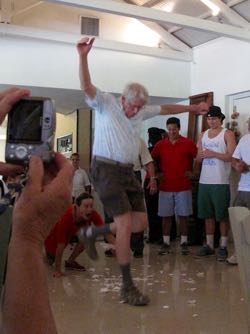
Force Yourself to Exercise—It Keeps You Going!
Dread of early alarms notwithstanding, sleeping-in not allowed, I make a point of going to the gym first thing three days a week—ridiculously early!
All three days, I splash about a water aerobics class (no matter the pool temp!); then two of the days, I stay at the gym and work with a personal trainer. He guides me in stretches and other warmups, treadmills, bicycling, weights, endurance, balancing, etc.
I hate every minute but I come away with a halo of smugness and a legitimate sense that I’m keeping my body going. Further, I’ve rediscovered and rebuilt muscles which had been long-neglected.
I try to walk daily (and not to stop too often to write in my notebook.)
I’m not creature of much willpower, but this is one area where—especially as I get older—I force myself to take the time (and the annoyance, and sometimes the boredom) of doing something which should keep me going longer.
My Attempts to Live a Balanced Life
I get up, up and away from my desk. Meet with other writers. With non-writers too!
Read, attend the theater. Improvise at the piano. Chase after granddaughter, four sheep, a horse and a mule.
I travel a fair amount. Try for new places. Add water and sunshine. Breathe.

I Quit Believing in Writer’s Block
[What is your biggest emotional challenge as a writer?]
Essentially, keeping on the tightrope without falling (or, to use another bit of banality, walking on water without sinking): i.e. producing quality work despite the rumblings in my psychic recesses of old voices (from childhood? from some careless teachers? from peers?).
They’re saying “Can you really do this? Can you create real characters? Can you write convincing dialog? Can you even really finish things? Is your work any good? Is that a coffee stain on your shirt?” To keep those voices far enough away is the challenge.
Interestingly, because so many people talk about writer’s block, I’ve had to tell myself, then remind myself more than once, that there’s no reason I need to fall into the condition. It’s not universal and for many may even be a self-fulfilling myth.
I quit believing in Santa when I was six. I stared doubting religious dogma when I was 15. I think I quit believing in writer’s block when I hit my 30’s!
Don’t Let Those Voices of Self-Doubt Get Too Loud
I cope by the most direct means possible: I write. I write some more. I keep on writing. I write again.
I make a point of finishing things. I produce completed work. I get positive feedback from family, friends and strangers/readers. I write on.
I’ve learned how to pace myself, to understand what I consider my “writing biorhythms” and know when to take breaks and never censure myself for taking them.
If I’m working on a really long story or novella, and I have to take a break for illness, travel or even the mundane necessities of everyday living (leaf-raking season is now arriving!), I never fail to get back to the work and always finish it.
And then I make sure it’s seamless so the breaks aren’t noticeable. Take that, you voices!
Overall, I try not to let those voices of doubt get too loud. I’ve learned that for every rejection notice, there’s always a good possibility of acceptance elsewhere.
In other words, I’ve come to believe in myself.
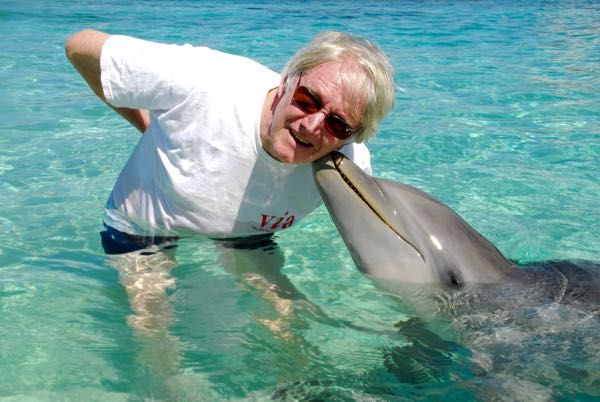
The Darkest Moment: When a Professor Criticizes Your Work
During a creative writing class in my senior year, a professor, critiquing just one short play, said I wrote pretty poor dialog.
That really set me back. The comment stuck.
It took years before I realized that a) I’d matured, b) I now understood people/life/psychology better, c) I did have a knack for dialog; it just hadn’t shown in that one instance and c) to hell with him!
Writers Should Never Sell Themselves Short
Believing in myself [has kept me true to my path].
And, as part of that:
realizing that I can have a singular, even distinctive voice…
being very willing to break the “rules”….
being willing to take chances, to create new words, to change parts of speech to my own advantage, to be generous with metaphor, symbols and lyrical language, to let my characters and my memory guide me, and to always allow unexpected detours (where parts of the story start writing themselves)…
It could be said that some of the above might lead to arrogance. But if you temper arrogance with the willingness to listen to good advice, and if you never sell yourself short (god, I hate these clichés, but they’re sometimes necessary), then you might just find that your writing gets better and better.
Advice for a Young Writer: Be Your Own Person
The hardest part might well be shoving aside peer pressure, advertising pressure, corporate world pressure, religious pressure, pop culture pressures, and much of today’s media wash, so that you can be your own person, thinking independently, developing your own ideas, flexing your own creative muscles and establishing a clear voice/vision that’s your own, not derivative.
A few suggestions for doing that:
- Avoid the social media mentality and rise above the crowd. This is not easy in today’s inane, “viral,” electronic, consumerist world, but you need to do it!
- Think for yourself. Be independent.
- Question. Question others. Question yourself.
- Learn to filter what you hear and read, recognize propaganda, realize when your ideas and tastes are being manipulated.
- Share only your originality, not “cleverness” or “cuteness” from others.
- Live life fully, travel.
- Observe, take notes, keep journals, diaries.
- Use all your senses, wherever you are. Sniff, touch, listen, look, taste.
- Develop friendships with other independent thinkers and those who are creative in their own right, not mimics
- Write, write, write (or draw, draw, draw).
- Try any and all genres—and keep trying them—until you find the one(s) with which you’re most comfortable and in which you begin to excel.
- Pick your teachers carefully. Never be afraid to question them, even challenge them!
- Learn the rules but break them when you need to.
- Enter competitions. Try again. And again.
Did I say write, write, write?
* * *
Eric E. Wallace, a former Emmy-winning writer-producer-director, now principally writes literary fiction and occasionally humor, drama and poetry. His work has appeared in many periodicals and literary journals, in ten anthologies and online at writersweekly.com, where he’s won many short story prizes.
His books to date are anthologies of his stories: Undertow, Hoar Frost, and Stonerise, all published by BookLocker.
Eric currently lives in Idaho, and he’s a member of the Idaho Writers Guild. For more information on him and his work, please see his website. All of his books can be bought online, softbound, from Amazon, B&N, BookLocker, BooksaMillion, etc. E-versions are available at Amazon, B&N, Apple/iTunes and Kobo.
Photos taken by Kathy McGowan.
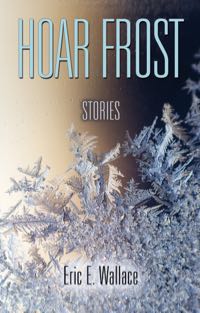 Hoar Frost: Seven dramatic and entertaining stories by award-winning author Eric E. Wallace.
Hoar Frost: Seven dramatic and entertaining stories by award-winning author Eric E. Wallace.
What might you experience inside a tornado? Could you go out onto a snowy rooftop to confront a jumper?
How long could you keep a huge secret from your fans? Are there significant moments of your childhood you may have repressed?
What if you suspect something about yourself which could demolish your career? How would you choose between two irreconcilable talents? How easily could outside forces radically change your orderly life?
Filled with unusual juxtapositions and remarkable characters, the diverse stories of Hoar Frost touch on important themes–including grief, love, mortality, faith and memory.
Available at Amazon and Barnes & Noble.
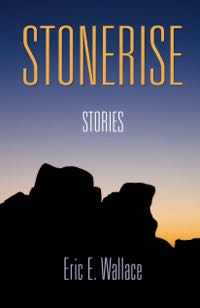 Stonerise: An anthology of nine dramatic and entertaining literary short stories by award-winning author Eric E. Wallace.
Stonerise: An anthology of nine dramatic and entertaining literary short stories by award-winning author Eric E. Wallace.
Could your memories keep you alive? What would it take to make you climb a mountain? Could you be happy living in complete poverty?
To what extremes might you go to protect your privacy? What might you learn while working inside a gorilla suit?
Filled with highly-evocative settings, unusual juxtapositions and remarkable characters, the diverse stories of Stonerise touch on important themes–including grief, love, mortality, obsession and memory.
Available at Amazon and Barnes & Noble.
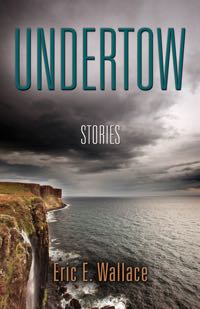 Undertow: In this is diverse collection of dramatic and entertaining short stories you’ll meet many remarkable characters, including:
Undertow: In this is diverse collection of dramatic and entertaining short stories you’ll meet many remarkable characters, including:
—a drone pilot with a singular nightmare (“Birds of Prey”)
—a taxi driver trapped in a day of crises (“Meter Running”)
—an American couple facing conflict in Scotland (“Loch Ness Monsters”)
—a Cherokee teen hounded by a bully (“Charley Horse”)
—a professional coffin builder with claustrophobia (“Room Enough”)
—a downsized executive struggling in a flagman’s job (“Road Work”)
—two women whose love is measured in unusual ways (“Spoons”)
—a widowed sheep rancher reluctantly stalking wolves (“Shades of Gray”)
—and more.
Undertow contains 18 stories touching important themes—love, mortality, the search for self-identity, ambition, grief, war, memory—told in subtle, sometimes ironic, sometimes quietly humorous ways.
Available at Amazon and Barnes & Noble.
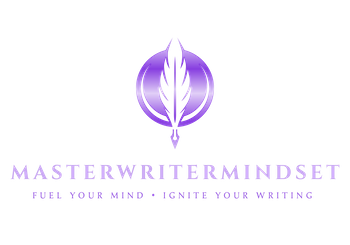

Such wonderful advice, Eric! I could relate to almost every aspect of your journey. I am thankful you shared, because suddenly I no longer feel so alone in my own struggles. Thank you!
Thank you, K.S.! It’s interesting today to read my own advice (penned a couple of months ago) and to doublecheck which parts of it I’m most closely following myself. (I just had a gulp of water!). And no, you’re not alone; writing is a lonesome thing at many points, and needs to be, but none of us has to be alone when it really counts. Thanks for your comment, and best of luck in your work…and Happy Holidays! /eric